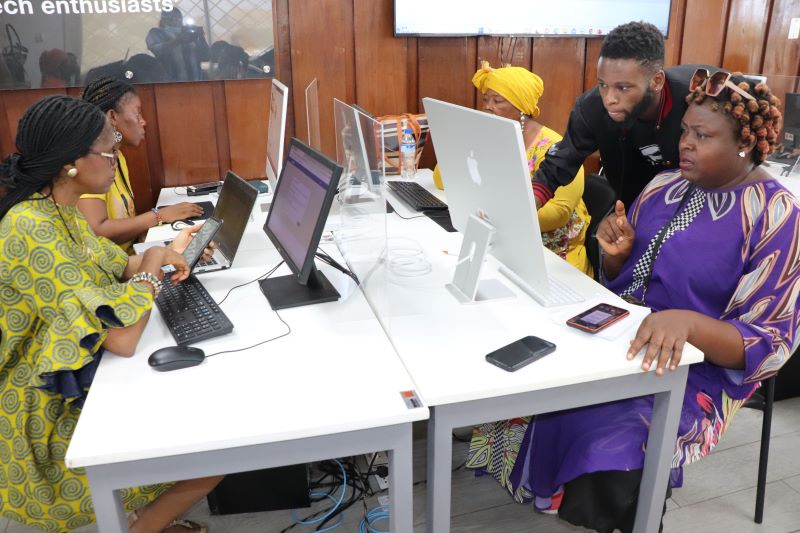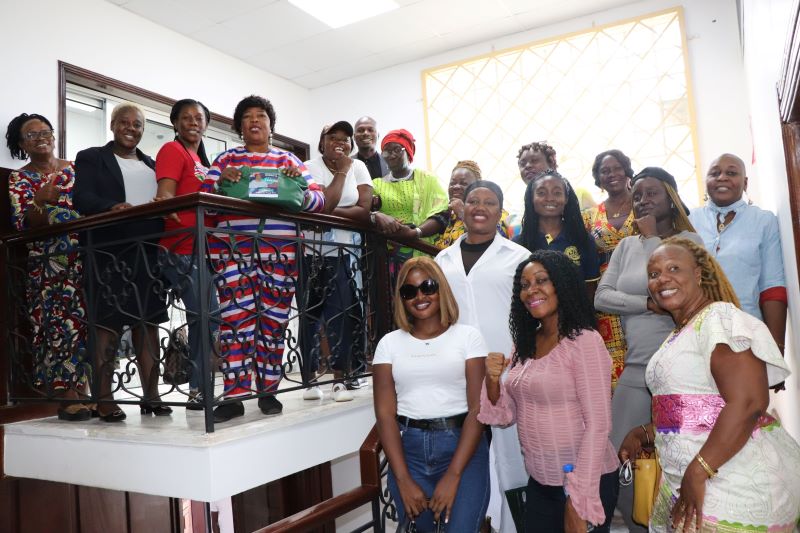Aspiring female politicians acquire social media and digital marketing skills ahead of general elections
Date:
Twenty-five aspiring female politicians who attended the pilot social media and digital marketing skills training facilitated by UN Women Liberia in collaboration with Orange Digital Center from 18 to 20 April 2023 are now equipped to use social media and digital marketing tools, Facebook, WhatsApp and Tik Tok, among others, to advance their political careers, communicate and run effective campaigns ahead of the October 2023 general elections.

Aspirants from various political parties in Liberia attended the training.
“I learnt how to use WhatsApp to broadcast messages to many people and how to use digital tools to create an event on Facebook, says Siah McCarthy Hare, an aspiring candidate.
“I am happy that we have completed the training and will be able to demonstrate what we have learnt. I want to assure UN Women and Orange Digital Center that what they have imparted to us will not be wasted. They will see the positive results. The digital skills I learnt will help to boost my campaign and help me to reach out to people online through different platforms,” she said.
“Before the training, I could not use some functions of the phone. I have learnt how to send messages to many people in a minute. I used to pay people to design fliers and plan events for me. With the knowledge I have acquired, I can now create events on Facebook on my own,” said Ms. McCarthy.
Another participant, Victoria Torlo Koiquan, said she would use the digital skills she acquired to enhance her campaign and to help people know that she is running for a Senatorial post during the upcoming elections.
“I had never posted a message on my WhatsApp status, but during the training, I posted a message, and within minutes, I received more than 100 messages in response. This means we can showcase our work in the community through WhatsApp. Some people are not on Facebook, but they are on WhatsApp. I will continue sharing messages on various social media platforms because I want more people to know I am running,” she said.
Ms. Koiquan highlighted that she learnt a lot of things during the training. “I learnt to post on my story, broadcast messages through WhatsApp and create events,” she said.

Comfort Lamptey, UN Women Liberia Country Representative, applauded the female political aspirants for their decision to stand as candidates and embracing social media as a tool to advance their political careers and carry out more effective campaigns and fundraising in the upcoming elections.
“In today’s world, social media and digital platforms are critical tools for connecting with voters, building a strong campaign, and sharing messages with a broader audience,” said Ms. Lamptey.
In addition, Zaza Mulbah, Orange Digital Centre’s Senior Manager, highlighted that his organization was proud to be associated with women who want to make a change. He encouraged the aspirants to embrace social media and set a good example so their voices could be heard, and the training could be extended to women in other parts of the country. “If you have aspired to go into politics and want to advance your career, there is no way you can avoid social media,” he said.
UN Women is partnering with the Orange Digital Center and the Government of Sweden to strengthen the capacity of female aspirants contributing towards women’s equal participation as candidates ahead of the October 2023 elections in Liberia. Women are grossly underrepresented in the legislature, where only 10.7 percent of the elected lawmakers are women.